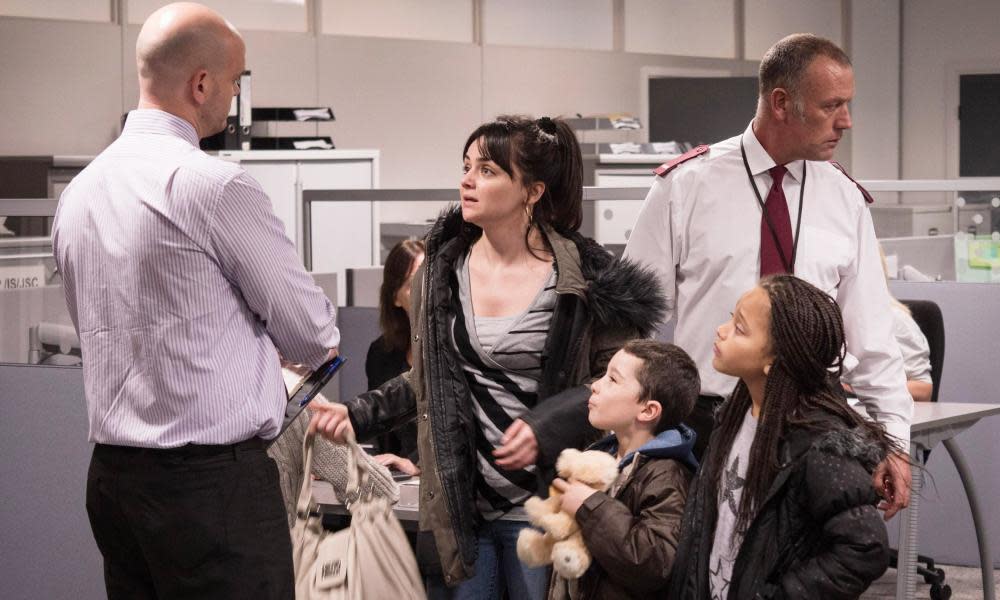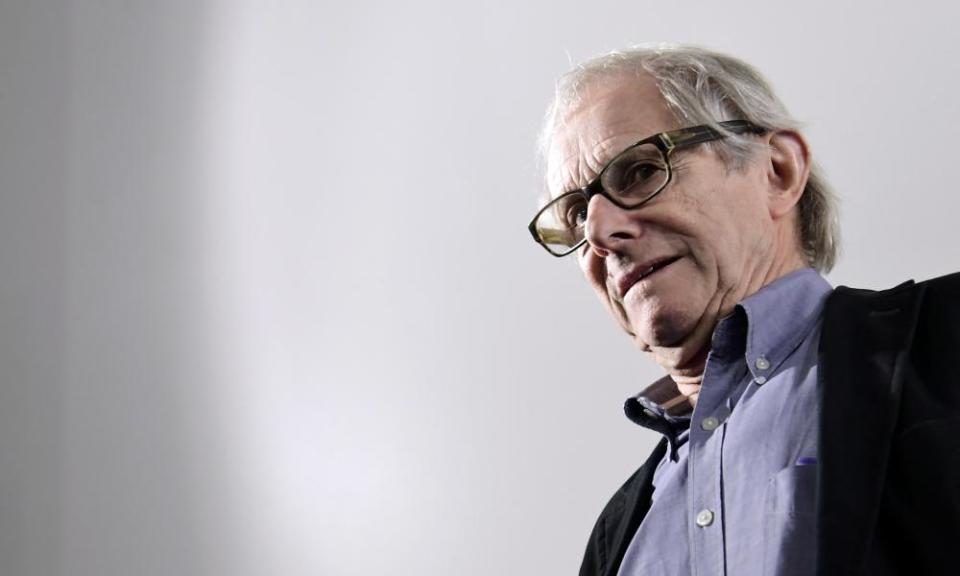I, Daniel Blake 'doesn’t represent reality', says jobcentre manager

A senior manager of Jobcentre Plus in Newcastle, whose office was depicted so damningly in Ken Loach’s indictment of the social security assessment system I, Daniel Blake, has hit out at the veteran film-maker’s treatment of his agency.
Steve McCall, employer relationship manager at Jobcentre Plus in Tyne & Wear and Northumberland, who is based at the branch featured in the film, said: “I, Daniel Blake is a representation … I hope people don’t think the film is a documentary, because it’s a story that doesn’t represent the reality we work in.”
Loach’s film, which is nominated for five Bafta awards at this weekend’s ceremony, follows the titular Daniel Blake, a 59-year-old carpenter who has recently had a heart attack yet is deemed fit to work by a “healthcare professional” at his local jobcentre. Patently unwell, and unwilling to try to twist the system, Blake is soon caught in a Kafkaesque cycle of bureaucracy, appeals and sanctions, as he finds himself descending into a life of abject poverty.
But McCall says Loach’s depiction diverges dramatically from his day-to-day experience of Newcastle’s employment services. “My team and I try to treat people as individuals, and we care about the work we do,” he told the Guardian. “There will be times when we get it wrong, but I don’t believe we are ever as wrong as how we are portrayed in this film.
“I remember talking about the film in the canteen. We were concerned about how it might affect our relationship with the people we were trying to help find work. How would they react to it?”
Loach, however, stands by his film. “I challenge anyone to find a single word in that film that isn’t true,” he said.
I, Daniel Blake, which won the Palme d’Or at last year’s Cannes film festival and is frontrunner for outstanding British film at Sunday’s Baftas, was shot on location in Newcastle, though its jobcentre scenes were filmed in a specially created set.

“I think we were more than fair to the jobcentre,” said Loach. “The making of the film was at least as rigorous as any piece of journalism. We were determined to be rigorous with the truth, because we knew people would try and shoot us down.”
Support for I, Daniel Blake came from far beyond the film industry, with the Labour leader, Jeremy Corbyn, urging Theresa May during prime minister’s questions to watch it.
Damian Green, the work and pensions secretary, said the film was “monstrously unfair” – though he added he had not seen it.
I, Daniel Blake has been criticised by some media commentators, such as Toby Young (in the Daily Mail) and the Sunday Times film critic Camilla Long who said it did not “ring true”. However, Hayley Squires, who plays a single mother in the film, said it showed “the absolute truth of what’s happening to millions of British people in this country” and accused Young and Long of “irresponsible journalism”.
Loach cites testimonies he and the screenwriter Paul Laverty took from current and former jobcentre employees. He said: “Many of [them] walked away from the jobcentre because they were disgusted by what they were being asked to do. They left because they didn’t want to be part of something they believed to be wrong. Steve [McCall] has obviously chosen to stay.”
The jobcentre and Department for Work and Pensions employees Loach refers to are thanked in the film’s closing credits but were too scared to be named individually for fear of retribution, Loach said.
“They told us that jobcentre employees understood they were working in a bureaucratic trap that had been built with the intention of catching people out,” he said. “They told us that people working at the jobcentre were given targets when it came to how many people they were expected to sanction. There is no doubt in my mind that, if a random cross-section of people went to the jobcentre every day, did everything they were asked to do, dotted every ‘i’ and crossed every ‘t’, some of them would still be sanctioned.”
Loach is backed up by Amanda Payne, who worked at the same Newcastle branch in a number of positions, including as work search assessor and hardship allowance officer, before leaving in 2015. She was cast in a small role in I, Daniel Blake.
“The processes for claimants portrayed in the film are set by the government,” she said. “They are the working practices an adviser’s performance is measured against … The film, I feel, portrays the exact way jobcentre staff are trained to work – but, in reality, personality dictates the degree of empathy and compassion a person can show.”
McCall said there was an undeserved stigma attached to jobcentre workers. “As an employment coach, you get a buzz when someone you have worked with, sometimes for a long time, finds employment,” said McCall. “That’s what makes my job worthwhile.
“We do have difficult conversations with people at times. We do have disputes with people. We have to deliver the benefit in the way it’s designed to be delivered. And yeah, we do make mistakes. We’re not trying to hide that. But we are there to help people, and sanctions are all always a last resort. That’s the reality of the jobcentre. The film doesn’t show that, and I think that’s for a reason.”
Loach said jobcentre workers were not the film’s primary target but added: “They’re imposing a system that is unjust. If you impose a system at the government’s behest that is wrong, of course you’ll be stigmatised.”
“I’d be keen to see if Mr Loach would be willing to make a film with the jobcentre,” said McCall. “The offer is there. We would very much welcome him to get in touch.”

 Yahoo Movies
Yahoo Movies 
